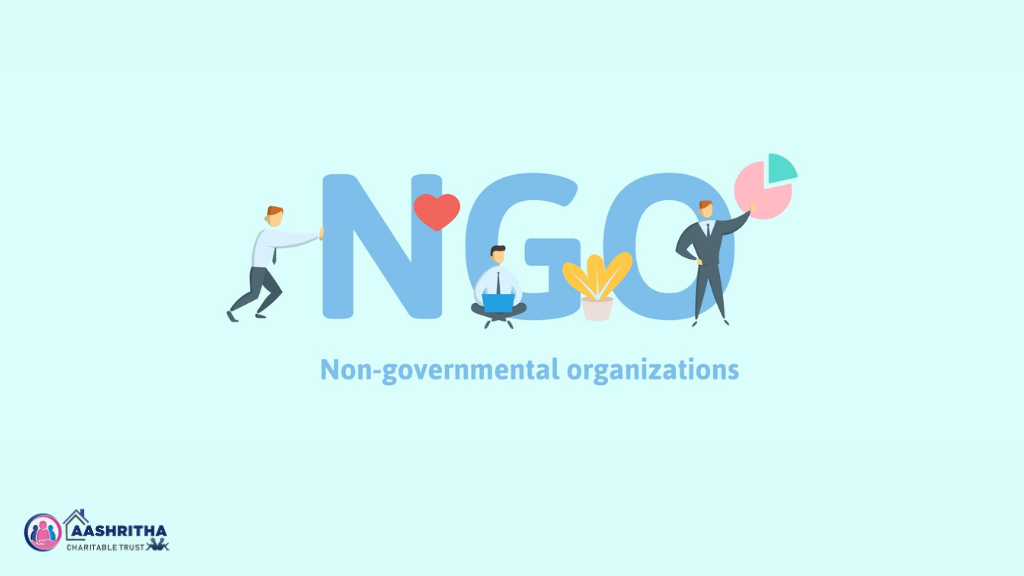In a country as diverse and populous as India, non-governmental organizations (NGOs) play a crucial role in addressing social, economic, and environmental issues. These organizations operate independently from the government and are driven by the mission to bring positive change in communities across the nation.
NGOs come in various forms, each tailored to specific causes and modes of operation. This article explores the major types of NGOs in India and highlights their unique functions and contributions.
1. Charitable NGOs
Function:
These NGOs primarily focus on philanthropy and welfare activities. They provide free services such as food distribution, clothing, shelter, education, and healthcare to underprivileged populations.
Examples:
- Organizations running orphanages, old age homes, and free meal programs.
2. Advocacy NGOs
Function:
These organizations work to influence public policy, raise awareness, and advocate for human rights, environmental protection, and social justice.
Examples:
- NGOs working on child rights, anti-trafficking, or environmental conservation.
3. Developmental NGOs
Function:
Developmental NGOs work on long-term community development projects like education, women empowerment, skill training, and infrastructure building.
Examples:
- Organizations implementing self-help groups (SHGs), microfinance initiatives, or rural electrification projects.
4. Religious NGOs
Function:
These NGOs are affiliated with religious institutions and often blend spiritual goals with social work such as health camps, disaster relief, and literacy missions.
Examples:
- Faith-based groups offering free medical services or spiritual counselling.
5. Environmental NGOs
Function:
These organizations are dedicated to conservation and sustainable development. Their work includes tree planting drives, wildlife protection, waste management, and water conservation.
Examples:
- NGOs campaigning against deforestation or industrial pollution.
6. Educational NGOs
Function:
Focused on improving literacy and access to quality education, these NGOs run schools, provide scholarships, and conduct remedial learning programs.
Examples:
- NGOs offering after-school tuition in slums or sponsoring school kits for rural children.
7. Healthcare NGOs
Function:
They work on public health initiatives, medical awareness, preventive care, and treatment support for diseases like TB, HIV/AIDS, cancer, and maternal-child health.
Examples:
- NGOs organizing medical camps, distributing supplements, or supporting government vaccination drives.
Legal and Operational Structure of NGOs in India
NGOs in India can be registered under several acts, such as:
- Societies Registration Act, 1860
- Indian Trusts Act, 1882
- Section 8 of the Companies Act, 2013
Each type allows NGOs to operate with different levels of compliance, fundraising capabilities, and governance structures.
Government Collaboration and CSR Involvement
The Government of India recognizes the vital role of NGOs and collaborates with them through schemes under the Ministry of Rural Development, Ministry of Health and Family Welfare, and Ministry of Education, among others.
Additionally, many NGOs work in partnership with corporate houses through Corporate Social Responsibility (CSR) initiatives. The Ministry of Corporate Affairs encourages CSR projects in areas like education, gender equality, and healthcare—often delivered via registered NGOs.
Conclusion
NGOs in India are diverse in form but united by a shared mission: social transformation. Whether it’s improving education in tribal belts or delivering healthcare in remote villages, each NGO type brings unique strengths to the table. Understanding these classifications helps us appreciate their contributions and find better ways to support or collaborate with them.
If you’re looking to make a meaningful impact, consider partnering with Aashritha Charitable Trust—an organization dedicated to holistic development through healthcare, education, and community empowerment across underserved regions in India.Whether you’re a donor, a volunteer, or a policymaker, knowing the types and functions of NGOs can help you make informed, impactful decisions.





